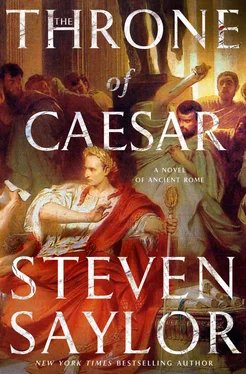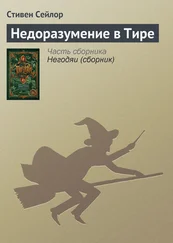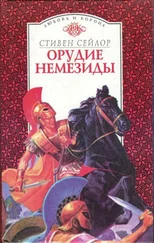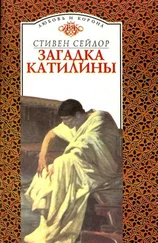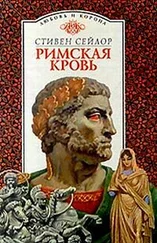Стивен Сейлор - The Throne of Caesar
Здесь есть возможность читать онлайн «Стивен Сейлор - The Throne of Caesar» весь текст электронной книги совершенно бесплатно (целиком полную версию без сокращений). В некоторых случаях можно слушать аудио, скачать через торрент в формате fb2 и присутствует краткое содержание. Год выпуска: 2018, Издательство: St. Martin's Press, Жанр: Исторический детектив, на английском языке. Описание произведения, (предисловие) а так же отзывы посетителей доступны на портале библиотеки ЛибКат.
- Название:The Throne of Caesar
- Автор:
- Издательство:St. Martin's Press
- Жанр:
- Год:2018
- ISBN:нет данных
- Рейтинг книги:5 / 5. Голосов: 1
-
Избранное:Добавить в избранное
- Отзывы:
-
Ваша оценка:
- 100
- 1
- 2
- 3
- 4
- 5
The Throne of Caesar: краткое содержание, описание и аннотация
Предлагаем к чтению аннотацию, описание, краткое содержание или предисловие (зависит от того, что написал сам автор книги «The Throne of Caesar»). Если вы не нашли необходимую информацию о книге — напишите в комментариях, мы постараемся отыскать её.
The Throne of Caesar — читать онлайн бесплатно полную книгу (весь текст) целиком
Ниже представлен текст книги, разбитый по страницам. Система сохранения места последней прочитанной страницы, позволяет с удобством читать онлайн бесплатно книгу «The Throne of Caesar», без необходимости каждый раз заново искать на чём Вы остановились. Поставьте закладку, и сможете в любой момент перейти на страницу, на которой закончили чтение.
Интервал:
Закладка:
The wine arrived and was served in decorated silver cups of extraordinary workmanship. The sculpted metal depicted a riot of drunken Maenads amid leafy foliage, celebrating their love for Bacchus, who appeared on each cup in his youthful guise as the ivy-wreathed giver of wine and lord of abandon. Here, as on the statue, the young god’s horns were clearly to be seen amid the grape clusters and vines on his brow.
“Appropriate for the occasion, I thought,” said Fulvia, addressing Cinna. “I presume Bacchus must play a role in this new poem of yours, Gaius, since it’s Bacchus whom Pentheus offends, for which crime the Maenads, including his mother, tear him apart. ”
“Why, yes, of course. Though the Maenads on these cups appear to be having just a bit of innocent fun.”
“And in a few days,” said Fulvia, “after the Ides, Rome will celebrate the festival of Father Liber, who is none other than Bacchus under a very old Roman name. I am honored to be organizing and playing host in this very garden to certain rituals of the Liberalia, those that are the exclusive domain of we plebeian women, as handed down by ancient custom.” She turned her gaze to me. “In preparing for the Liberalia, your wife and daughter have been very helpful to me, Finder. How gratified they must be at the great honor the Dictator has granted you.”
I nodded.
“And to be sure, Bacchus has always been a favorite of my husband, to whom the god has in turn shown great favor.”
I looked at Antony, thinking this was the moment he would offer a ritual toast, but he seemed content to keep silent and let Fulvia do it. She turned her gaze toward the statue of Bacchus at the center of the garden.
“So as we drink, let the god be present among us in all his names and guises—Bacchus, Bromius, Father Liber, Dionysus, Euhan-Euhius-Eleleleus…”
With her cup raised to the horned statue, and her eyes half shut, she sounded like a priestess as she invoked the god. This was a side of Fulvia I had not seen before, the pious Roman matron who took care that every occasion in her home, however great or small, should be pleasing to the gods.
* * *
I arrived home that afternoon quite exhausted by so much walking, and a bit slow-witted from Antony’s Falernian, which had replenished the silver cups of Bacchus more than once.
Bethesda was delighted that Fulvia had mentioned her and appalled that I had not yet visited the tailor.
“Do it now, husband!”
“Now? There’s no time.”
“The sun is still up. ”
“Not for long. A fitting at a tailor can take hours.”
“All the more reason to get it done right now—”
“Wife, desist! I’m tired and I wish to take a nap before dinner. I’ll tend to the toga tomorrow.”
I had two slaves carry a sleeping couch and bring a warm coverlet to the garden. Bast the cat joined me, purring loudly as she burrowed between my legs. I drifted off to sleep beset by unsettling thoughts.
When had Roman wives begun to give orders to their husbands? When I was a boy such disrespect for the head of the household was unheard of. Yet here was Fulvia corralling Antony like a tamed bull, and my own wife presuming to tell me what to do. I still found it hard to believe that the half-savage slave girl I purchased in Egypt long ago was now a Roman matron (thanks to the fact that I manumitted and married her) and consorted with the likes of Fulvia, quite possibly, after Calpurnia, the most influential woman in Rome. What could the two of them have in common? Was it possible that my wife and Antony’s, when in private and away from masculine ears, ostensibly making plans for some festival, in actuality shared observations and advice regarding the manipulation of their menfolk? Did there exist, unseen but not unfelt by men, a veritable conspiracy of women?
Tomorrow, I promised myself, I would do as Bethesda demanded and take care of the toga. How absurd it seemed, that in the days leading up to the all-important Ides I should be so anxious about a mere piece of wool with a bit of scarlet dye.
DAY THREE: MARCH 12
XVII
I woke the next morning fully intending to visit the tailor as soon as I had washed my face and had a bite to eat. But no sooner had I dressed than a visitor arrived.
“Who is it?” I asked.
The slave, half asleep himself, mumbled the name “Brutus.” I told him to take the guest to the small library at one corner of the house, and soon thereafter headed to the room expecting to find Marcus Brutus. I couldn’t imagine what he had to say to me. Had my visit to his house ended too abruptly for his liking?
That puzzle evaporated and was replaced by another as soon as I saw the visitor. Marcus Brutus, with his elegant comportment, seemed born to wear senatorial dress. This man, though about the same age as Marcus Brutus, had a very different bearing. He would be more at home in military armor, I thought, than his poorly fitted toga. He wore a neatly trimmed beard, as military men often do, saying they encounter enough dangerous blades in battle. His posture was stiff and in his eyes was a look that proclaimed he had no time for nonsense. Junior officers would be terrified of such a man.
“Do we know each other?” I asked .
“We do not,” he answered. “That’s why I’ve come. To meet you. As a courtesy.”
This was not very enlightening. “You know my name, I take it. But I don’t know yours.”
He grunted. “Decimus Junius Brutus Albinus. I did give my name to the man at the door.”
“Apparently four names are too many for the poor fellow to remember.”
“Then he shouldn’t be answering the door.” He grunted again, perhaps realizing it was rude for one man to lecture another about household slaves.
“He did remember ‘Brutus.’ Since I saw Marcus Junius Brutus only yesterday, I thought perhaps—”
“Different branch of the family,” he said.
“Yes, as that Albinus at the end would indicate.”
“But likewise descended from the founder of the Republic.”
I nodded. “As a matter of fact, I think you look a bit more like that famous statue than does your cousin Marcus. Especially with the beard.”
He touched it. “It helps me to pass as a Gaul.”
“Do you do that often?”
“On occasion.”
“Ah, yes, I remember. You’re the Dictator’s handpicked man to govern Gaul. My son says you speak several Gaulish dialects better than the Gauls themselves.”
He said something that must have been a Gaulish proverb, for when he saw my incomprehension he translated: “‘To rule the henhouse you must think like a rooster.’ The Gauls are very proud of their gaming cocks.”
“Speaking of Gaul,” I said, “you and I were both in the vicinity of Massilia a few years back, when Caesar laid siege to it. I was trapped inside the walls. You commanded the fleet that destroyed the Massilian navy offshore. I saw some of the battle from the walls of the city. Ships aflame. Mangled bodies and blood amid the waves.”
“If you thought it looked ghastly from shore, you should have been on the water that day.” He flashed an incongruous smile .
“My son Meto does that sometimes, too.”
“What’s that?”
“Smile, when recalling something horrific.”
He shrugged. “It’s the excitement. There’s horror in the actual moment, but when a man thinks back, it’s the excitement he recalls.”
“I should have thought it was the other way around.”
Decimus Brutus laughed. It was a hearty laugh, devoid of any rancor or irony. “Caesar said you were like that.”
“Like what?”
“‘A deep one,’ he called you. ‘Cuts straight to the heart of the matter. Practically a philosopher.’”
“I suppose I’m flattered that the Dictator finds my character worthy of discussion, though I can’t imagine why.”
Читать дальшеИнтервал:
Закладка:
Похожие книги на «The Throne of Caesar»
Представляем Вашему вниманию похожие книги на «The Throne of Caesar» списком для выбора. Мы отобрали схожую по названию и смыслу литературу в надежде предоставить читателям больше вариантов отыскать новые, интересные, ещё непрочитанные произведения.
Обсуждение, отзывы о книге «The Throne of Caesar» и просто собственные мнения читателей. Оставьте ваши комментарии, напишите, что Вы думаете о произведении, его смысле или главных героях. Укажите что конкретно понравилось, а что нет, и почему Вы так считаете.
